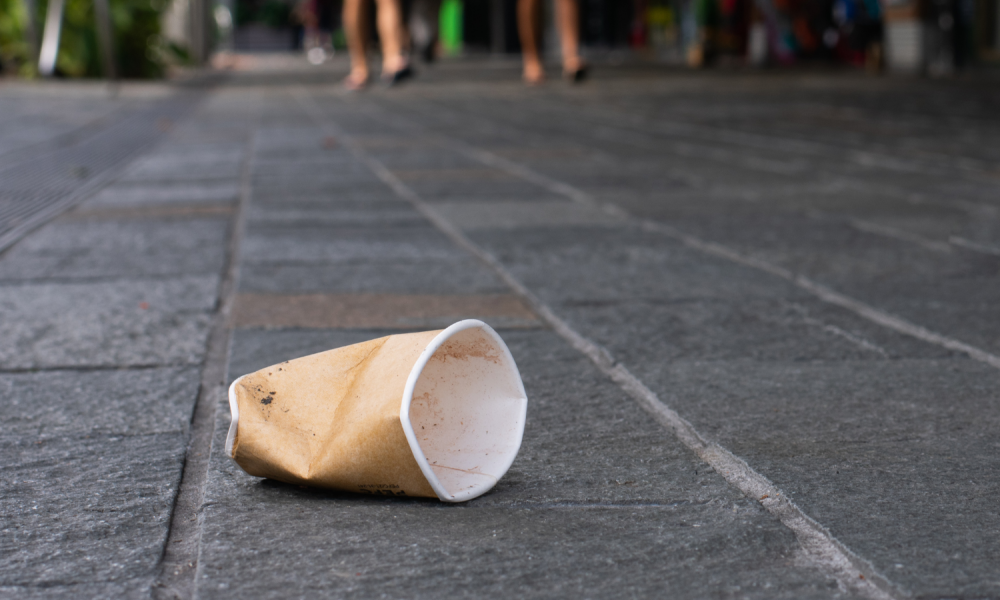New law to curb littering and throwaway culture will target 200 million wasted single-use cups a year

The Circular Economy Bill comes before the Seanad today (Tuesday 14th June) and aims to curb Ireland’s littering and throwaway culture. The legislation will incentivise the use of reusable and recyclable alternatives to single-use disposable packaging, where there are suitable re-usable alternatives available. When it comes into law, it will enable a 20c charge to be applied to single-use coffee cups as a first step in a suite of wider measures.
Minister of State with responsibility for Communications and Circular Economy, Ossian Smyth TD, said;
“It is estimated that 200 million cups are disposed of every year. Most of these cups cannot be recycled. Although largely made up of paper, they are usually lined with plastic polyethylene which is fused to the paper, making the cups waterproof but also difficult to recycle. Compostable and biodegradable alternatives also largely end up in landfill. This week’s litter survey published by the Irish Businesses Against Litter (IBAL) highlighted that while there has been a sharp fall in litter blackspots across the country, litter from single-use cups remains significant.
“Public and industry consultation will be a key next step once the legislation is passed into law. We need to take climate action seriously and we are looking at very significant change in the months ahead. However, we are also taking a practical approach with ongoing consultation across all key stakeholders. There will likely be some limited exemptions introduced where a reusable alternative is just not possible.”
To date, the Circular Economy Bill 2022 has achieved cross-party support, following a co-operative process at committee stage that took onboard a number of key amendments.
Senator Róisín Garvey, Spokesperson for Rural Development and Enterprise, Trade and Employment stated;
“Many small and medium size businesses out there are already incentivising customers to use reusable cups through discount offers and local and national deposit and return schemes. It can reduce cost and storag e issues for cafes and with half a million single-use cups currently being used daily, it will also greatly reduce litter on our streets. People’s desire to cut down on single-use cups has already led to new enterprise and jobs being created by reusable cup companies and deposit and return schemes, and this Bill has the potential to create further business opportunities and sustainable growth in this area.”
Senator Pauline O’Reilly, Spokesperson for Education and member of the Climate Committee added;
“The transition to a circular economy represents a shift away from the linear ‘take, make and waste’ model, which relies on a steady supply of natural resources to create products and packaging. Not only are we producing inordinate levels of waste, 45% of Greenhouse gas emissions come from producing those goods and materials. The idea of a circular economy is based on the concept of waste as a resource and secondary raw material, which can be reused and recycled.”
Other key aspects of the Bill include:
- Providing for the GDPR-compliant use of a range of technologies, such as CCTV to tackle illegal dumping and littering, while protecting the privacy rights of citizens.
- Variable pricing for business waste to incentivise segregated waste and recycling.
- Banning the exploration for, and extraction of, coal, lignite and oil shale.
- Re-designating the existing Environment Fund as a Circular Economy Fund, which will remain ring-fenced to provide support for environmental and circular economy projects.



